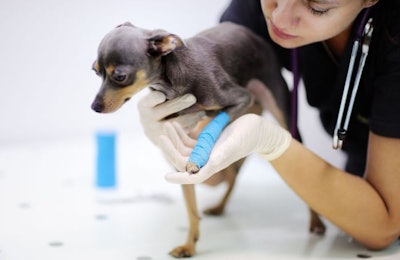
The Federal Trade Commission ruled in late December 2017 that Mars Petcare must sell 12 veterinary clinics in 10 locations, in order for the pet food business to acquire veterinary services company VCA. The ruling would allow Mars to settle anti-trust claims related to the US$9.1 billion purchase of VCA, which includes 800 pet hospitals in the US and Canada.
FTC requires that Mars divest the 12 clinics to three buyers National Veterinary Associates, Pathway Partners Vet Management Company and PetVet Care Centers.
History of antitrust claims against Mars
In August 2017, FTC announced complaints alleging that the acquisition would have substantially lessened competition for certain specialty and emergency veterinary services in 10 US areas by eliminating head-to-head competition between Mars specialists in the area and those of VCA.
The Commission modified the proposed order in response to comments received during the designated public comment period. The changes allows the continuation of long-standing arrangements between veterinarians at different clinics to cover for each other temporarily. The modified order adds language to allow on-call or relief veterinarians to perform work at both Mars clinics and divested clinics.
History of Mars’s acquisition of VCA
On January 9, 2017, Mars announced that the company will buy VCA, a pet hospital operator, for US$9.1 billion including US$1.4 billion of outstanding debt. With the deal, announced January 9, Mars will acquire nearly 800 pet hospitals in the US and Canada.
VCA joins Mars Petcare’s portfolio of veterinary services businesses includes Banfield Pet Hospital, Bluepearl and Pet Partners. Together with VCA, these businesses provide veterinary care for pets, from wellness and prevention to primary, emergency and specialty care.
"VCA is a leader across pet health care and the opportunity we see together—for pets, pet owners, veterinarians and other pet care providers —is tremendous,” said Mars CEO Grant F. Reid, in a press release. “We have great respect for VCA, with whom we share many common values and a strong commitment to pet care.”
Mars will offer US$93 per share of VCA stock, which is 31.4 percent more than VCA’s closing price on Friday, January 6. The agreement has been unanimously approved by the boards of directors of both companies.
VCA separate within Mars Petcare
Since its founding in 1986, VCA has grown from one facility in Los Angeles to nearly 800 animal hospitals with 60 diagnostic laboratories throughout the US and Canada. Through organic growth and a series of acquisitions, VCA now has operations across four divisions including veterinary services, laboratory diagnostics, imaging equipment and medical technology, and pet care services.
Upon completion of the transaction, VCA will operate as a distinct and separate business unit within Mars Petcare, and will continue to be led by Bob Antin, CEO, president, chairman and a founder of VCA. The company will remain headquartered in Los Angeles, California, USA.


















